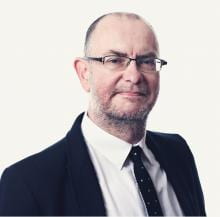
«”But, are you here in an official capacity?”: the ethics of office in organizational life » .
In recent years, there has been an upsurge of interest in the concept of ‘office’ within the social and human sciences. One key element of this has been a rekindled interest in the moral attributes of public agency, of the ethics of ‘office’ and the conduct of ‘office-holding’, inspired not only by a number of well-publicized political controversies, but also by growing ethical uncertainties related to controversial reforms of a wide range of public institutions. Regarding the latter, for instance, while the once fashionable New Public Management ‘movement’ had much to say about managing individual performance and responsibility for results, it had virtually nothing to say about how this relates to the function, duties, and obligations pertaining to the conduct of public office, no matter how ‘high’ or ‘mundane’ the latter may be. Why might this be significant? Well, if we turn to the public administration as an institution of state, for example, we can see that at its core it is a highly structured domain of offices; and because relatedly those occupying those offices do so not as ‘individuals’ but as ‘personae’ tied to roles – to their formal official duties, obligations, and associated areas of autonomy and discretion. Ethics in public administration is thus primarily about meeting the demands of official, not individual, personal responsibility and accountability. And while ethics in this context does indeed involve ‘choices’, such ‘choices’ are not purely personal ones, but official ones: choices facing us in our official role as professional public servants, however humble our particular stations may be. This goes for other domains too, as I will show throughout the talk. In the latter I will suggest that much of the moral fog-horning pertaining to questions of ethics in formal organization, for example, could be avoided if more attention was paid to the ethics of office or ‘role’. While the latter tradition is largely absent from most histories of ethical thought, it has survived so long in practice, if often ‘in mufti’, because it matches the lived realities of those involved in public or state service, for instance, where what is considered appropriate ethical conduct for officials derives substantially from the nature and function of the office they happen to occupy. Take the occupant into a different public office and you probably change most of their official ethical obligations.
Bio: Paul du Gay is Professor in the Department of Organization (IOA) at Copenhagen Business School, and Director of Research in the School of Management, Royal Holloway, University of London. He is the author of, inter alia, Consumption & Identity at Work, Questions of Cultural Identity (with Stuart Hall), In Praise of Bureaucracy, and For Formal Organization: the past in the present and future of Organization Theory (with Signe Vikkelsø). At CBS he directs the Velux Foundation research project ‘Office as a Vocation: re-instating an ethic of office in public service’.
